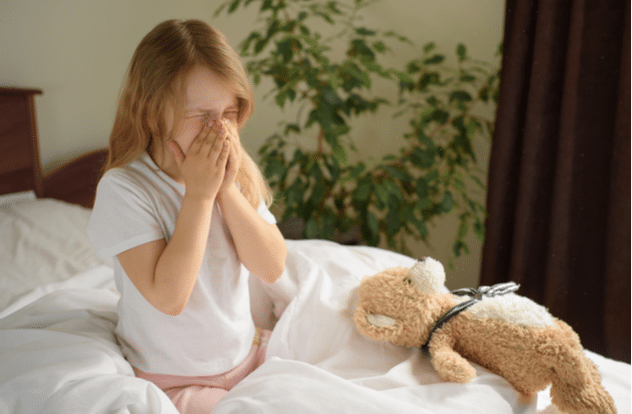
Summertime is much more fun outdoors. It’s hard to enjoy activities when you’re nursing a runny nose, watery eyes, and a scratchy throat. Allergies are not only a nuisance in spring, but they can also be a summertime pain.
But, understanding and controlling allergens can help you enjoy summer again.
Common Summer Allergens
The thought of flowers blooming is enough to make some people sneeze. While you might expect the need to keep a tissue handy during spring, don’t put it away yet. Summertime is when grass varieties release pollen. High pollen levels from grass can make being outside miserable.
Also, ragweed is a culprit for summer allergies as well.
Although ragweed is common during fall, it starts to bloom between late July and early August.
Hidden Summer Allergens
When you think about allergies, typical nuisances like pollen and dust come to mind. But during the summer, overlooked culprits can be to blame.
Household pests can also contribute to allergy misery. Fruitflies, cockroaches, and rodents are all known to cause allergy symptoms. If you’ve noticed any of these pests around your home, eradicate them as soon as possible.
Another common household pest that can worsen your allergies is dust mites. Dust mites are invisible to the naked eye but can wreak havoc.
Dust mites’ droppings and sheddings activate your allergies with symptoms of:
- Congestion
- Itchy or watery eyes
- Sneezing
- Coughing
- Asthma attacks for those with asthma
Also, they feed on dust in your home and live in mattresses, bedding, carpets, and curtains. Keeping these items clean is effective in keeping dust mites at bay.
Mold is another overlooked summertime allergen. Mold thrives in warm, damp places. Summer heat and rain create ideal conditions for mold growth. Fight mold growth by keeping your home cool, dry, and ventilated.
Controlling Summer Allergies
While you may think you’re powerless to do anything about your allergies, you have plenty of tools to try. First, check the pollen count when you’re ready to head outside. The pollen count helps you track how much pollen is in the air at a given time. Staying informed on the pollen count simplifies decisions about your activities.
You can also control summertime allergens by:
- Washing sheets and bedding
- Changing your air filters
- Showering after time outdoors
Are you looking for more strategies to tackle seasonal allergies? Get expert advice from New York ENT. Call us today at 212-873-603 to schedule a consultation.



